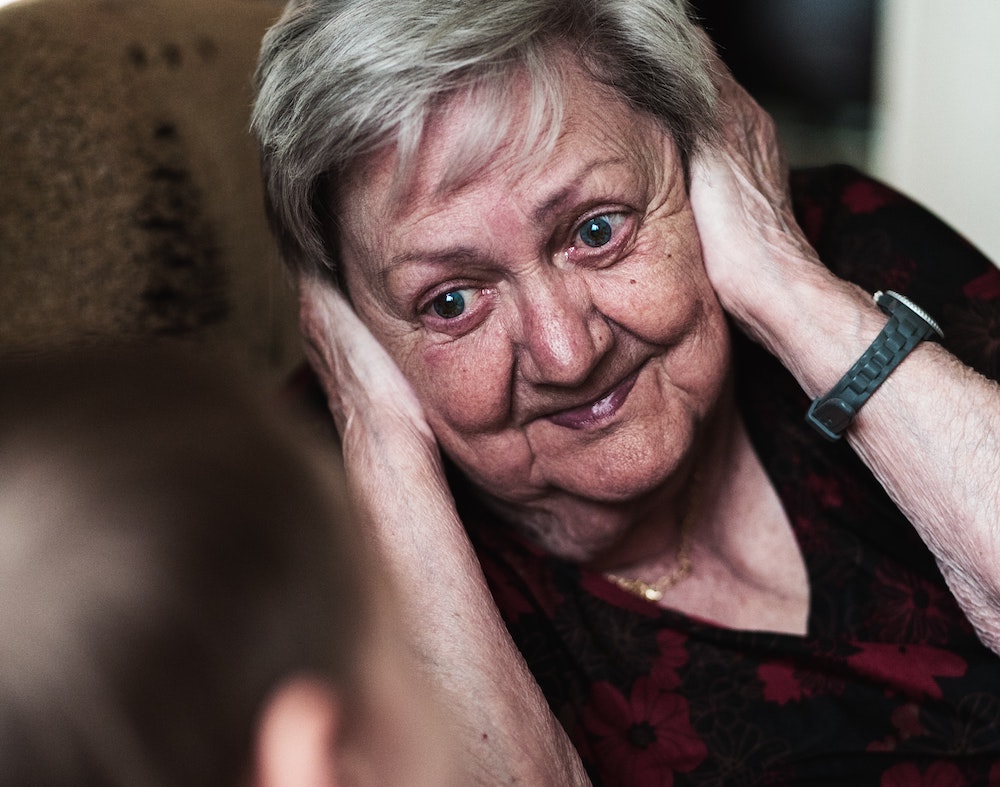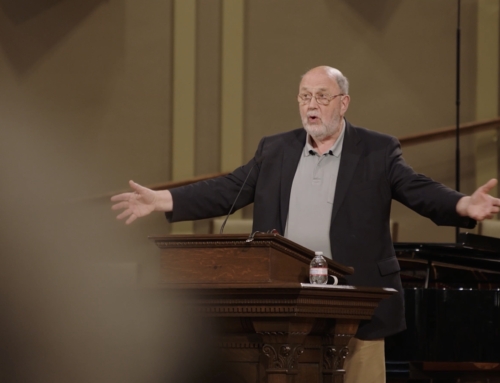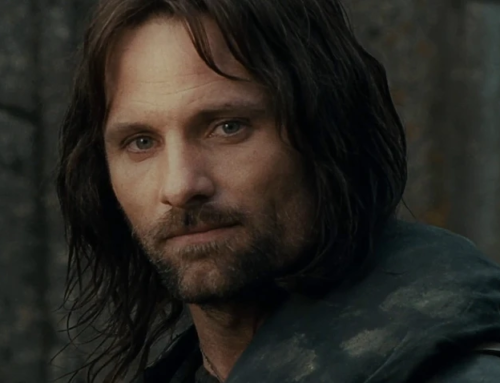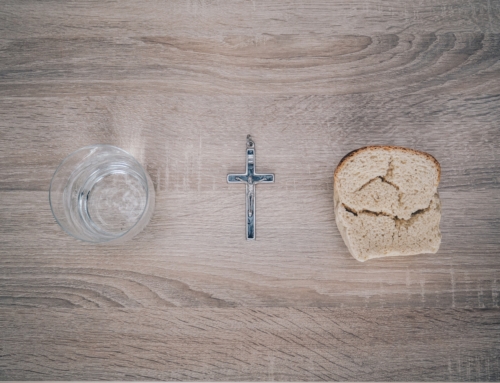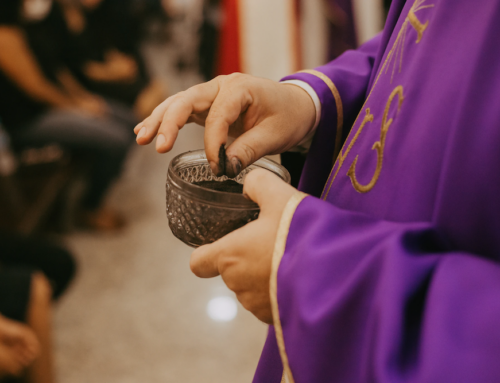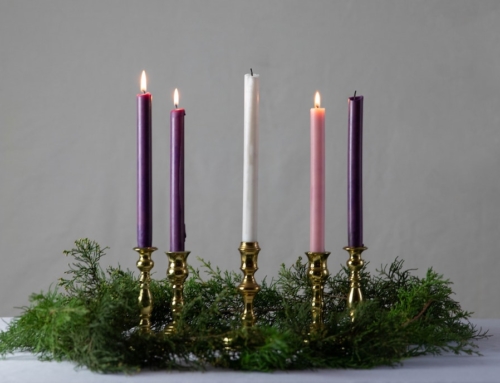I have been thinking a lot about role models lately.
It is an interesting question to consider who inspires us or whom we aim to imitate. How does our family and culture shape and inform these figures? Who were your role models growing up? Who are they now?
As a child, my Granny was at the top of my list because she always seemed so calm under pressure and had the ability to assuage all my fears. I remember the time she was driving my aunt’s German model stick-shift car, which stalled at a traffic light on a hill. As she grinded the gears between reverse and first, the cars behind us honked and I looked over at her quite worried. She pursed her lips, as she often did, and then relaxed as an unfazed expression formed on her face. Granny assured me she would figure it out, which she managed after several attempts. We even made it successfully through the intersection before the light turned red again.
Even now, when I am frustrated or ready to give up, I catch myself pressing my lips similarly as I think of my Granny’s determination to keep going. And, I press on, with God’s help, of course (although he is still helping me to work on the ‘unfazed’ bit).
Be Imitators of Me
If I think about people in the Bible I might want to ‘be like’, the Apostle Paul comes to mind. In 1 Corinthians 4:16, Paul appeals to his audience to ‘be imitators of me’. In addition, the Book of Hebrews provides a list of others, who, with both flaws and frailties, modeled the keeping of faith.
Daniel and his friends come to mind as the narrator of Hebrews describes those ‘who shut the mouths of lions, quenched the fury of the flames, and escaped the edge of the sword’ (Hebrews 11:33b-34).
In Daniel 3, we read of Shadrach, Meshach, and Abednego, who were brought before King Nebuchadnezzar and threatened with being burned alive, unless they proclaimed publicly their devotion to a false god of a foreign kingdom.
Their response is an example of the lived experience of embodied faith:
If our God whom we serve is able to deliver us from the furnace of blazing fire and out of your hand, O king, let him deliver us. But if not, be it known to you, O king, that we will not serve your gods and we will not worship the golden statue that you have set up.
This keeping of faith emerges from three words: ‘but if not’. What they seem to be saying is that even if He, YHWH, does not rescue them from danger or even death, they will not give up faith in the One God who is always faithful to his promises.
The Trauma of Exile
With Christian hindsight we understand that the Babylonian exile was a result of Israel’s idolatry. It might be easy to overlook the story of these individual young men who have survived a traumatic experience. Each has been taken from their homes and families and been transported physically to a strange land with a brutal dictator. My friend Angela reminded me recently that they, along with Daniel, also endured their names being taken from them as part of the attempt to corrupt their identities. Not only that, but they lost their traditions, customs, foods, festivals, and worshipful practices—their whole way life was gone. Yet in the story of Daniel we see that despite all that had been lost, YHWH never lost sight of his people.
Through the ages the church has been able to grab hold of this story and reach for the encouragement to keep the faith—a faith that reflects belief in God’s faithfulness and goodness and responds, but if not…
Working with the Kingdoms of the World
In our course on the Book of Daniel, Prof. N.T. Wright examines what happens when those who are loyal to the kingdom of God find themselves working for—and with—those who are loyal to the kingdoms of the world. You will explore key themes in Daniel, which includes the One God who is sovereign over the kingdoms of the world. You will see that God is not disinterested or unaware, but that he is involved and concerned to give his people wisdom through prayer and through his power which will be exalted to new heights.
This course will also focus your understanding of Daniel 7 in its context and will unlock keys to its importance in the New Testament. You will learn ways in which Jesus made Daniel thematic in his own reference to himself as the Son of Man. While Daniel’s apocalyptic visions at the end of the book are not parsed in detail, you can expect to discover what Prof. Wright means by the statement, ‘If you want to be Daniel 7 people, you’ve got to live for a while in Daniel 9.’
Prof. Wright’s teaching will illustrate how the narratives in Daniel are more than simple stories—they are anchors to encourage persecuted people with models of fidelity. Exile is where Daniel starts and where his story is located. It bears resonance in the lives and situations of people today who are oppressed by systemic injustices. The story in Daniel is meant to give hope for those who suffer as they seek to live out God’s kingdom ethic in the world.
As we look forward to our next course on Genesis that will be launched in May, students who have completed the course, The Book of Daniel, will notice a few similarities not only in structure, but also in the story the that is being told. Prof. Wright will examine the story of the ‘beginning of the beginning’ and continue by following the various strands of the family story in the lives of Abraham, Isaac, and Jacob. The course ends by drawing particular attention to the life of Joseph. Several comparisons can be drawn from the Book of Genesis, which include Joseph’s exilic experience in Egypt— and his own name change to Zaphenath-paneah—and Joseph’s rise to power in a foreign kingdom. Far from being a string of typological examples, the course on Genesis centres around God’s presence with his people, his promise, purpose, and provision. By the end, you will see why Joseph is included in the faith chapter of Hebrews 11:
By faith Joseph, when his end was near, spoke about the exodus of the Israelites from Egypt and gave instructions concerning the burial of his bones.
Imitating My Grandmother’s Sacrifice
Here is one final story about one of my role models, and the role of family and culture that shape our personal heroes of faith. My Granny, Ruth Suran Li, was born in California to Korean immigrants in 1919, at a time when it was not yet legal for women to vote in the United States. My Granny taught me how to read at a very young age and she also told me I could continue learning and go to college (not something women did regularly in her day!) She helped my mom who was a single parent and was instrumental in caring for me as I grew up. In my teens, she saw me through relationships with bad boyfriends who were abusive. She told me not to put up with people who hurt me and to have faith that there was a better way.
When I ended up moving from California to Wisconsin to live with my father—whom I never really knew that well—my Granny cashed in her savings of about $3000. She gave it all to me so I could pay off some bills and have some money to buy a used car and get a job in a new state. Her gift gave me have a chance at a fresh start. I remember sitting on the plane as I embarked on my journey, clinging to her gift and the scripture text, ‘but, if not…’.
When I think about my Granny’s sacrifice I also reflect on her gratitude and love for me. It points me to consider the way that Jesus gave everything he had so that we might have a new life and a fresh start. And, I am encouraged by the biblical stories of those who lived out their faith, those who exemplified the faith {that} is the assurance of things hoped for, the conviction of things not seen (Hebrews 11:1).
Jennifer Loop
Latest posts by Jennifer Loop (see all)
- Why You Need Lent: Two Perspectives - February 22, 2023
- How (Not) To Understand a Parable - October 20, 2022
- What People are Saying About ‘Ethnicity, Justice and the People of God’ - February 10, 2022


